THIS CRAZY DAY IN 1972: Carole Feraci rocks the Nixon White House, and she rocks period.
Weekly Compilation: January 24-30, 1972
To access all site contents, click HERE.
Why do we run this separate item peeking into newspapers from 1972? Because 1972 was part of the ancient times when everybody read a paper. Everybody, everybody, everybody. Even kids. So Steve Bertolucci, the 10-year-old hero of the novel serialized at this Substack, read the paper too—sometimes just to have something to do. These are some of the stories he read. If you’d like, keep up with the 1972 papers every day on Twitter, @RoselandChi1972.
January 24, 1972
Chicago Daily News: Deep Purple in heavy show
By Jack Hafferkamp
When the Son of God comes to the most heavenly of Chicago performance spaces—the Auditorium—let’s hope you have a ticket.
I speak of course of Deep Purple lead singer Ian Gillan, who plays Jesus…
…on the original (and only necessary) version of the Jesus Christ Superstar album.
Unfortunately the microfilm copy of this article gets cut off, so I’m missing any good details on Gillan. But Jack Hafferkamp’s Ritchie Blackmore coverage is epic:
“Blackmore is an incredibly flashy guitarist. At the conclusion of ‘Space Truckin’,’ he turns his volume knobs up all the way, and cuts loose with a perfectly executed parody of every would-be lead guitarist’s secret fantasies.”
“He whams the strings with his right hand, and tugs at the sound bender until the intense feedback quivers and moans. Then, after throwing the instrument over his head a couple of times, he draws the guitar neck across his back and plays it with his rear end.”
“At one point, he falls to his knees to run the strings across the edge of the stage. Finally, he flings the guitar to the ground and changes sounds by dancing on the strings just behind the bridge.
“Whew, that’s heavy.”
Now everybody go play “Smoke On The Water.”
January 24, 1972
Daily News: Bob McBride-Ch 2 News ad
Channel 2 forges ahead with its ad campaign to boost new anchorman Bob McBride up into Ch. 7 Fahey Flynn/Ch. 5 Floyd Kalber atmospheric levels.
Background: McBride started at Ch. 2 on October 25 after an elaborate ad campaign telling Chicagoans if they didn’t watch McBride’s premiere that night, they’d miss "one of the most important events in WBBM-TV's history."
Here's the first post-premiere follow-up ad:
Mike Royko watched the premiere and wrote an entire column of mockery on Oct. 26, covered at the link below. Mike said Ch. 2 would do better with somebody incredibly ugly, like the Wolfman or Quasimodo, because that’s what 1972 viewers like and remember.
Ch. 2 came back with a great response on November 11:
Last week, Bob McBride moderated an Illinois Bar Association panel discussion on women’s liberation and the law and did not cover himself with glory. He addressed the audience as “look, girls”. You can read about that debacle at this link under the January 21 entry.
Today, Ch. 2 continues the ad campaign with yet another new entry. They could take a joke and run that Wolfman ad, but they cannot take a hint. They will not stop these ads.
January 24, 1972
Chicago Daily News: AF probes jet’s sonic boom here
When’s the last time you heard/felt a sonic boom?
“Air Force officials Monday investigated a window-rattling sonic boom caused by an Air Force pilot who apparently strayed off course.”
“The boom, which reportedly shattered at least one window and broke a basement water pipe, was felt in Chicago at about 2:30 PM Sunday.”
Turns out an Air Force pilot flying a F-206 fighter jet was 33,000 feet over Peotone when he asked the Aurora FAA tower for permission to speed up to 1,000 knots—and Aurora said sure.
The article says the pilot thought he was over Lake Michigan, but not whether the FAA tower knew the F-206 was over land when they gave permission to speed up.
“We don’t know why he was so far off course,” said an Air Force spokesman. People with “valid claims” of sonic boom damage can call 217-495-2746.
“The Air Force was investigating the boom because the noise violated a prior agreement to avoid alarming the public with unannounced sonic booms.” How about avoiding infuriating the public? “Hundreds of area residents phoned police, fire and aviation officials trying to find out what caused the window-rattling noise.”
January 25, 1972
Chicago Daily News: After 27 years, the war ends for a Japanese on Guam
(UPI)
If you listen to Dan Carlin’s Hardcore History podcast, you already know stories of Japanese soldiers emerging from the jungle decades after WWII ended are not stories, but true.
Japanese Imperial Army Sgt. Shoichi Yokoi was ordered “never to surrender to the Americans who stormed the Pacific island on July 21, 1944, and he followed that order until yesterday.”
A couple of hunters found Yokoi “tending a homemade shrimp trap,” and convinced him the war was over. Now 56, Yokoi has survived in the jungle living on “nuts, breadfruit, mangos, papaya, shrimp, snails, rats and frogs. He drew the line at snakes.”
Sgt. Shoichi Yokoi had never heard of an atomic bomb, or television. And he “stared incredulously when told a jet plane would return him to his home town of Nagoya in three hours.”
Fascinating? I agree. There’s plenty more on Hardcore History’s “Supernova in the East” episodes. Luckily they’re among the free episodes. Available on podcast platforms and the website.
January 25, 1972
Chicago Daily Defender: Cherokee Charlie Says
Part 1: Shirley Chisholm
Charlie describes a visit to the Defender office for a press conference by U.S. Rep. Shirley Chisholm, campaigning for the 1972 Democratic presidential nomination.
“The Brooklyn bombshell, Rep. Shirley Chisholm, gave Chicagoans in every section a chance to see her in action over the week-end,” writes Charlie. “Her press conference in the board room of the Chicago Daily Defender attracted all the top reporters.”
“She didn’t duck any questions and some of the press veterans confided that her hard-hitting, no-holds-barred approach to politics was a joy to behold.”
And yes, Younger Readers, the Defender has been running a column called "Cherokee Charlie Says" since the 40s. See the January 4 item here for more background.
Part 2: Jack Brickhouse & Wendell Smith
Charlie covers the Chicago Press Club’s 22nd annual President’s Dinner, held at the Pick-Congress Hotel and emceed by WGN Cubs announcer Jack Brickhouse.
Since Brickhouse started announcing the Cubs on radio in 1940, shifting to TV when WGN began broadcasting in 1948, he’s already a Chicago institution on par with Mayor Daley in 1972.
Charlie reports that dinner emcee Brickhouse praised the incoming Press Club president, WGN sports anchor Wendell Smith, who was unable to attend due to surgery that morning.
Charlie: “Wendell told him [Brickhouse] that he never met a man he did not like…Jack said the remark reminded him that he has a friend who said that his first two wives felt the same way.”
BTW, Brickhouse emceed last year’s dinner too. Charlie reported then that “When Brickhouse introduced the out-going club president, Maury Falstein, he made special note of his initials. The house roared.”
Wendell Smith came to Chicago from the Pittsburgh Courier, which was the country’s most prominent Black newspaper after the Defender. Smith campaigned hard to break the color line in professional baseball, and is credited with recommending Jackie Robinson to the Dodgers’ Branch Rickey when he was looking to hire the first Black player in the major leagues.
Smith covered Robinson for the Courier, and also traveled with him as a companion on the Dodger payroll at Branch Rickey’s request. So Smith was with Robinson continually in 1946 for his year in the minor leagues, and for his first year with the Dodgers in 1947. Smith quickly wrote the first book on Robinson, “Jackie Robinson: My Own Story.”
We’ll read more about Smith during 1972 because, sadly, he will die in November, just a month after Jackie Robinson.
In Chicago, Smith worked first for Chicago’s American (which by 1972 is Chicago Today) before switching to TV. Smith went first to Ch. 2 (WBBM), and soon moved to WGN as sports anchor for the 5 PM and 10 PM broadcasts. He also wrote columns for the Defender and later the Sun-Times.
Oh, and you never heard of the Chicago Press Club? That’s because it closed its doors in 1987, deeply in debt for its last club headquarters in the lower level of the Wrigley Building, and owing the IRS. The Reader’s Mike Miner spoke with Richard Digby-Junger about writing the club’s history in 1998. Digby-Junger was then a journalism professor at Western Michigan University specializing in journalism history.
The Chicago Press Club, per Digby-Junger, began in 1880 and soon had posh digs at the Inter-Continental Hotel. Members could stay overnight and find a meal at its restaurant and bar 24 hours a day. Ben Hecht didn’t belong—he probably thought he was too good for it, said Digby-Junger—but Charles MacArthur did.
The club faded but surged back when Tribune sports editor Arch Ward (who thought up the baseball All-Star game as a promotional gimmick for the Tribune) brought it back in 1947. That’s why in 1972, the club is only on its 22nd annual President’s Dinner. But the Chicago Press Club would soon fade away again as reporters started including women, going to health clubs, and especially going home for dinner and to see their families instead of drinking all night.
January 26, 1972
Chicago Daily News: Nixon tells his secret strategy
By Peter Lisagor
Chicago Daily News: Viet Cong turn down peace offer
ByMilt Freudenheim
Chicago Daily News: Sshh-h-h! Kissinger tells how he kept his trips secret
(AP)
So America finally finds out Henry Kissinger has been secretly meeting in Paris with the North Vietnamese for 30 months.
“President Nixon has moved dramatically to suppress the critical fire of antiwar factions and families of war prisoners with his disclosure of secret negotiations to end the Vietnam,” writes the Daily News’ Peter Lisagor, Washington Bureau Chief.
“In a startling revelation, Mr. Nixon said [South Vietnam] President Nguyen Van Thieu had informed him of his willingness to resign a month before an internationally supervised election.”
“By laying bare the record of private talks in Paris over a 30-month period, Mr. Nixon also hopes to put Hanoi and the Viet Cong on the spot in their efforts to depict the United States as inflexibly opposed to a political settlement of the war.”
Meanwhile, in another front page article, reporter Milt Freudenheim writes that “The Viet Cong Wednesday rejected President Nixon’s new peace formula. North Vietnam accused Mr. Nixon of breaking a promise in disclosing secret talks between Hanoi and presidential adviser Henry A. Kissinger.”
Kissinger held a “rare on-the-record news conference,” which is another way of saying Kissinger usually talks to reporters secretly instead, , manipulating the news behind-the-scenes.
Today he clearly revels in talking about how he made the secret trips to Paris.
Kissinger said he kept it on the down-low with help from French President Georges Pompidou, flying to American military bases in Europe and transferring a few times before ending up at “a little-used airfield near the French capital.” Kissinger wouldn’t go into more detail because “we may want to do it again.”
January 26, 1972
Chicago Daily News: Sears 2-page spread ad for “Cartridge Television”
Sears runs a two-page spread for its new “Cartridge Television”—an exciting new technology that Sears’ marketing wizards have given the most boring possible name, then put in an ad with almost no graphics, and type so small and dense it looks like a pocket Bible.
And by the way it cost $10,671.85 in 2022 dollars.
No wonder the Sears Cartridge Television was just one in a heap of failed home video systems from the ‘60s and early ‘70s leading up to the big VHS vs. Betamax war we all remember.
Among the completely uncompelling points in Sears’ Bible-length ad: “No one can accurately judge the full potential of cartridge television. One expert says it will have a greater effect on communications than any development since the printing press.”
Somewhere in the middle they buried what should have been the lede: “You get a good clear picture since it does not come through your antenna and is unaffected by air planes, or most other kinds of outside interference.”
Right?? Remember the joys of antennas, Older Readers?
The second page includes a "Partial List of Movies and Programs for Sears Cartridge Television" including, under movies: Exodus, Red River, Casablanca, High Sierra, Marriage Italian Style, Maltese Falcon, I was a Teenage Werewolf. Heavy on Humphrey Bogart--interesting!
The three titles under "Self-Improvement" are How To Stop Smoking, Diet Without Drugs, and Reducing Executive Tension. The three Art titles are a look at Impressionism, a look at Western art, and French mime Marcel Marceau—who coincidentally is in Chicago this week with sold out shows no doubt.
January 27, 1972
Chicago Daily News: ‘Chutist’ hijacker slain by FBI agent and recover $200,000
Yawn, another exciting early ‘70s hijacking. There’s just so many to keep track of.
This time, Heinrich Von George, 45 and father of 7 from Brockton, MA, pulled a gun to hijack a Mohawk airlines twin-engine propjet enroute from Albany to NYC. Von George told the pilot he had a bomb, for good measure, and ordered him to land in White Plains.
In White Plains, Von George released the passengers, took stewardess Eileen McAllister hostage, and demanded $200,000 and two parachutes. He threatened to jump, and make McAllister jump with him—admittedly a new twist.
After collecting the ransom and parachutes, Von George ordered the pilot to take off for Duchess County airport. Four Air Force jets followed the plane, so for some reason, the government took this hijacking seriously.
The pilot later said Von George got edgier as time went on. “He’s screaming…he sounds like a madman. He says he’s not only an expert parachutist, he’s an expert pilot. He’ll put bullets through us and take this crate out of here himself.”
They land in Duchess County, where Von George has ordered a car waiting. He debarks and takes stewardess McAllister to the car. Von George gets in the driver’s side, she gets in the passenger side.
Now an FBI agent walks up to the car’s passenger window. The FBI agent identifies himself.
According to the prosecutor’s office, next:
“The hijacker fired a starter’s pistol at the FBI man. The agent then leaned over Miss McAllister and fired one blast from his shotgun at point blank range.”
So, Eileen McAllister was held at gunpoint for hours, threatened with being forced to parachute out of a plane, and finally an FBI agent leaned over her and shot the hijacker right next to her with a shotgun at point blank range. I’m thinking that was messy.
Reporters ask her if the ordeal was difficult. She says:
“No, not really. I feel fine, just glad to be here.”
And D.B. Cooper is still at large with his $200,000.
January 27, 1972
Chicago Daily News: Abe gets Dooley’s old job
By Jack Schnedler
Abe Gibron “was unveiled Thursday after a month-long charade by team owner George S. Halas,” writes Jack Schnedler.
“In tapping Gibron to be the seventh head coach in the Bears’ 53-year history, Halas maintained his tradition of staying within the organization…Gibron, who ranks among the fattest as well as the most widely respected men in professional football, inherits a team that lost its last five games in 1971 on the merits of a truly dreadful offense.”
Gibron, Papa Bear and Bears President Muggs Halas all insist Gibron will have more authority than Jim Dooley, but Gibron isn’t getting the general manager title too. Still, Gibron is talking big: “I think the players know some feathers are going to be ruffled,” said the 46-year-old Gibron, who has been an assistant coach here since 1965. “This is going to be a tough operation, an Abe Gibron operation, and anybody who doesn’t like that is going to be playing somewhere else.”
January 27, 1972
Chicago Daily News: Halas confesses Meddled time or two
No byline
Papa Bear and Bears president Muggs Halas announced Abe Gibron will fill Jim Dooley’s old job as coach at a press conference at their Loop offices—and Papa Bear admits he interfered with Dooley’s coaching once or twice last year.
“’Periodically, there have been rumors I was interfering with Dooley,’ the Bears’ owner told reporters. ‘I want you to know now that I only interfered once in four years. That was after the 12th game of the fourth year (1971) after the Denver game (which the Bears lost 6-3).”
“’I walked into the offensive game room after that game, and I told the five coaches present that their game plan had been deplorable. And I did something about it.’”
“Halas said he had the game plan simplified for the next week’s game against
Green Bay and also added a couple of his own suggested plays.”
And Papa Bear dropped—“seemingly as an afterthought”—that Dooley had planned to switch Bobby Douglass from quarterback to running back, but he said no. “I gave the order never to convert him to a running back.”
January 27, 1972
Chicago Daily News: Famed gospel singer Mahalia Jackson dies here at 60
By Donald Zochert
“Mahalia Jackson, the inspired queen of gospel music who poured out her heart ‘making a joyful noise unto the Lord,’ died Thursday morning of heart failure.”
Jackson, 60, had entered Little Company of Mary Hospital in Evergreen Park on January 19. “Miss Jackson’s songs of amazing grace were hailed in concerts and performances around the world. Among her most notable renditions were ‘Move On Up A Little Higher,’ ‘Even Me,’ and ‘He’s Got the Whole World in His Hands.’”
Born in New Orleans, Jackson remembered singing all the time. “’I remember singing as I scrubbed the floors,’ she once recalled. ‘When the old people weren’t home, I’d turn on a Bessie Smith record and play it over and over. ‘Careless Love,’ that was the blues song.’ Her father, however, feared the ‘sin of jazz’ would touch her, and Mahalia soon began to concentrate on gospel music.”
Jackson moved to Chicago in 1927, working as a beautician and singing. Her records began selling big in 1946, with “Even Me, Lord” selling over a million copies in 1945. Jackson wouldn’t switch from gospel to jazz or blues, turning down all offers. “’The good Lord has helped me in so many ways and I can’t let Him down,’ she said.”
January 28, 1972
Daily News: Author admits wife made Hughes’ bank deposits
By Betty Flynn
Our New York correspondent
Remember publisher McGraw-Hill is about to sell an autobiography of reclusive billionaire Howard Hughes, as-told-to novelist Clifford Irving? Everybody remembers the book says Howard Hughes has grown his finger and toe nails to the length of 9 inches.
But Hughes recently. surfaced for the first time in 15 years to tell the press he never talked to Irving or cashed checks from McGraw-Hill, and now the jig is up.
“Author Clifford Irving admitted Friday that his wife, Edith, used the name Helga R. Hughes to open a Swiss bank account and deposit $850,000 worth of publishing company checks intended for Howard Hughes.
“The admission was disclosed by Maurice Nessen, Irving’s new attorney, as the two left Dist. Atty. Frank Hogan’s office after three hours of questioning.” Nessen couldn’t say if the Irvings withdrew the money they deposited. Irving has been subpoenaed to appear before both a federal and a county grand jury.”
Doesn’t look good for Clifford Irving. “Irving has contended that he personally gave two checks totalling $325,000 to Hughes at meetings in Florida and the Bahamas, and a third check for another $325,000 to a Hughes aide, George Gordon Holmes.” He also swore he “met Hughes more than 100 times to prepare the manuscript”.
McGraw-Hill is “shocked” to find the “H.R. Hughes” they sent checks to in Zurich is not Howard Hughes.
January 28, 1972
Chicago Daily News: Mr. Magic Hughes a wizard at lavish spending
By Donald Zochert
The big news on Clifford Irving admitting his wife cashed the checks McGraw-Hill sent to Howard Hughes is a good excuse for another article on that nutty billionaire.
A few good nuggets: When Susan Hayward dated Hughes, she told her kids his name was “Mr. Magic.” When Hughes dated Ava Gardner, she was driving a broken down old Chevy, so he bought her a brand new car--but he used the old one as a trade-in.
One time he “moved into the $250-a-day day penthouse at the Desert Inn in Las Vegas” and stayed past his reservation. He wouldn’t answer the door or phone, and there were other reservations for the penthouse, so finally the hotel slipped a note under his door asking him to leave. Hughes “slipped back a note asking how much he’d have to pay for the penthouse if he bought the hotel.”
“Back came a note in return: the asking price for the hotel was $13 million. Hughes slipped a note back to the manager with one new word written on it: ‘Sold.’”
January 28, 1972
Chicago Daily Defender: Cherokee Charlie Says
…For the second year, Jays Foods, Inc., has purchased one minute per game in each of WFLD-TV’s 129 Chicago White Sox telecasts….

Which reminds us that with the signing of Richie Allen, the two local baseball teams have three black players in the $100,000 or more a year category…In case it slipped your mind, the other two are Billy Williams and Fergie Jenkins…
…As a public service, the auxiliary of St. Joseph’s Hospital is giving away drink-drive calculators in the hospital’s lobby…They’re pocket-size; made of light weight cardboard, and are designed to compute the amount of alcohol an individual can consume without impairing his driving ability…
The GOP National Committee is trying to sell President Nixon to black voters…Edwin T. Sexton, Jr., assistant to the chairman and director of the Black Division, has issued an interesting report on Nixon’s moves in the area of civil rights…It covers the gains in small business, housing, health, education and welfare and lists his appointment of blacks to key posts…Black women haven’t fared too badly in appointments…Dr. Marise T. Hadden, former adjunct professor with the University of Michigan, was named Peace Corps Country Director for the Eastern Caribbean islands, the fifth woman to get this position in the 10-year history of the Peace Corps…
That Chicago Urban League luncheon Friday (today) is an over, over sellout. New national executive director Vernon Jordan will make his initial appearance…The League has a first-rate community image…
January 28, 1972
Daily News: Jon & Abra: A chilling example of male chauvinism
Jon and Abra Anderson write a great gossip column for the Daily News that runs in the everyday section, with Dear Maxine right next to them now.
Jon and Abra are perfect for the job because they’re the kind of people who normally live in a gossip column, so they might as well write it--though obviously there is much more to both of them. More after this from today’s Jon and Abra column:
“Our office window commands a fine stretch of the Chicago River and, as the seasons turn, we watch the river change from a lovely blue color in summer to an icy gray in winter to a violent green on St. Patrick’s Day,” Jon and Abra begin the column today.
“This little stretch of gloppy water is also famed as the scene of more stunts by press agents than any other body of near-water in the Western World.” The Chicago River was more of an open industrial sewer in 1972--this is why Jon and Abra call it “gloppy” and “near-water”.
“But the oddest spectacle we have ever witnessed took place Thursday morning. We came to work, checked our river scene and spotted a large replica of a Pepsi-Cola bottle, equipped with outboard motor and commanded by two lovelies in bikinis.”
“This, on a day when the river was filled with ice cubes and a soft snow was falling on their bare soft shoulders. A second boat, filled with shivering men in parkas, circled about shooting pictures. Let it be noted here and now that the ladies in our office, to a man, condemned the stunt, a promotion for the Chicago Boat Show. But no one felt like braving the elements to rush outside and put a stop to this male chauvinist nonsense. After all, it’s pretty hard to accuse two girls of posing as sex objects when they look like they’re about to succumb to exposure.”
Let’s stipulate that anyone who writes a gossip column for three years (1969-72) is doomed to be associated with writing a gossip column forever.
Especially when your condo renovation ties up Lake Shore Drive as helicopters hoist I-beams to your 30th floor penthouse in Drake Towers. That 1974 remodel included a two-story living room with the floor-to-ceiling windows you’ve probably spotted if you ever drive south on Lake Shore Drive from North Avenue and head toward the Oak Street curve.
But of course, there’s more to Jon and Abra than the gossip column.
Jon Anderson came to Chicago from Canada as Time Magazine’s Chicago correspondent. He quit a few weeks after covering the deaths of the eight young nurses murdered by Richard Speck in 1966. In 1990, he told the Reader’s Mike Miner why:
“It put me in the middle of things I didn’t want to see, first of all,” Anderson explained. “And second, what startled me was the everydayness of how everybody else I was working with at Time magazine treated it.” Years later he would write a short story…he called “Which One Was the Swimmer?” It had been a question put to him by a Time fact checker in New York: “‘Which one was the swimmer? Was that the one who was stabbed in the eye?’ He was using the same kind of fact-checking techniques you’d use to check a story on baseball,” Anderson said. “That got to me. So I left.”
But he was soon back reporting, this time for the Sun-Times, and married fellow reporter Abra Prentice. Quickly they became Jon and Abra, writing the Daily News gossip column 1969-1972. That year, Abra’s parents both died. In a 1974 Tribune profile, the couple said they quit their Daily News jobs after the death of Abra’s mother, in order to care for her ailing father and tend to other family affairs. As a great-granddaughter of John Rockefeller, she also came into an estimated $35 million inheritance.
By 1973, Abra had inherited her parents’ penthouse in Drake Towers, the 30-story building just east of the Drake Hotel—the one with the helicopters involved in remodeling. Also utilizing the inheritance, Jon and Abra began the short-lived The Chicagoan magazine. Jon was publisher, then editor/publisher, while Abra wrote a dining column as turned most of her attention to philanthropy, “overseeing construction of Prentice Women’s Hospital and Maternity Center, named for her parents,” according to a 1974 New York Times profile.
Young up-and-comer Rick Kogan worked for The Chicagoan for its approximate 18-month existence. By 1976, the magazine was history, and so were Jon and Abra. Jon went to work for the Tribune, taking two years off to focus on writing at the University of Iowa, and returned to the Tribune’s Tempo section until he retired. Both would remarry, and Abra continued working as a philanthropist.
“Jon Anderson was impossibly handsome and he married a Rockefeller. If there is more to him than that, Chicago wasn’t dying to know about it,” wrote Mike Miner after Anderson’s death in 2014.
James Janega wrote Jon Anderson’s obituary article for the Tribune, noting that Studs Terkel praised Anderson’s book of essays, "City Watch: Discovering the Uncommon Chicago”:
"His manner is deceptively simple," Terkel said, "and in that simplicity is something that reaches out and touches you… that understanding of what makes a human being tick."
Janega also quoted Rick Kogan, who’d been Anderson’s editor for the Tribune’s Tempo section. Regardless of Anderson’s society background, Kogan said he “was ever interested in Chicago's gritty underbelly, and the people who populated it. He could write about the most rarefied events, and also about what's happening in the neighborhood street corner."
But in 1972, Jon and Abra Anderson are the high society couple covering high society for the Daily News. Abra was “Chicago’s number one debutante back in 1961,” noted the New York Times. Anything named “Prentice” in this town is named after someone in her family.
Dave Neubart profiled Abra in 2000 with this terrific lede: “Abra Prentice Wilkin is best known as a socialite who hosts parties for princesses and who possesses a wild flair that has included jumping in fountains fully dressed and posing in the nude for her Christmas card ("They were tastefully done," she has said).”
Speaking of that time, Mike Miner wrote in the Reader that Jon and Abra were “Chicago’s most beautiful couple, occupying a penthouse on East Lake Shore Drive, irradiating Riccardo’s whenever they entered, and writing a celebrity gossip column that trivialized them both.”
I wondered if Mike might want to add to that thought now. “It was a gossip column,” he told me, audibly shrugging. “The only gossip column that was ever taken seriously in Chicago was Kup’s. It’s unfair to say nobody took [Jon and Abra’s gossip column] seriously because nobody takes any of those columns seriously. I don’t think Jon ever did. I don’t know how Abra felt about that. She was a Rockefeller, maybe she felt she couldn’t be trivialized. But Jon felt that way. He always wanted to be more in life than somebody’s good-looking husband.”
January 29-30, 1972
Daily News: Big jet hijacked, ask for $300,000
Freedom for Angela demanded
This time, it’s a TWA jet flying from LA to NYC, but the hijacking happened over Illinois.
“A talkative passenger pulled a gun from a plaster cast on his arm” and demanded $300,000 plus freedom for Angela Davis, about to stand trial. The jet landed in NYC, let off the passengers, and took off again with the hijacker and entire crew as this paper went to press.
An FBI agent stood outside the plane and talked with the hijacker while the plane was in the ground at Kennedy Airport. Sharpshooters “took up positions” around the plane, but didn’t stop it.
“U.S. Army Pfc Gregory Henderson, a passenger, said the hijacker was bleeding profusely, apparently from cutting himself with razor blades used to remove the cast concealing the gun.”
“It was learned that after landing at Kennedy, the hijacker talked by telephone to Dr. David G. Hubbard, of Dallas, a psychiatrist who reportedly treated him two years ago and who has written a book about what motivates airplane hijackers.”
January 29-30, 1972
Chicago Tribune: Singer Protests War at White House Dinner
(From Tribune Wire Services)
Chicago Daily News: Singer’s protest jars Nixon gala
(AP)
My God, I wish I had a picture of Nixon’s face at this historic moment. We’ll settle for the usual:
To set the scene: Picture a formal White House dinner in 1972—enough hairspray and fake eyelashes to fill the Albert Hall—followed by the most boring entertainment possible. Bob Hope was included, of course, so that gives you some idea. It’s all in honor of Mr. and Mrs. DeWitt Wallace, who have been awarded the Medal of Freedom for founding Reader’s Digest.
“As President Nixon watched with 150 guests at a White House social event, a woman entertainer pulled a small silk banner from the top of her low-cut blue evening gown and displayed it,” according to the AP’s crisp lede.
“’Stop the killing,’ the black letters on a blue background said. Carol Feraci, 30, a member of the Ray Conniff Singers, then spoke into the microphone on the small stage in the East Room of the White House”:
“’Mr. President, stop the bombing of human beings, animals and vegetation,’ she said. ‘You go to church on Sunday and pray to Jesus Christ. If Jesus Christ were in this room tonight, you would not dare to drop another bomb. Bless the Berrigans and Daniel S. Ellsberg.’”
The group then performed “Ma, She’s Makin’ Eyes At Me.”
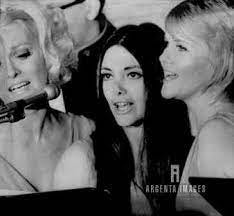
“When it ended, there were groans, boos and a shout of, ‘You ought to throw her out!’ Conniff asked Miss Feraci to leave. She did.”
That’s all correct, but leaves out some interesting details.
Ray Conniff was making his way onstage as Feraci pulled out her banner and started speaking. He didn’t understand what Feraci was saying--which I don’t understand myself, since her microphone was working very well and her speech was calm, firm, steely and distinct.
As Feraci winds up, Conniff takes his place centerstage to conduct the band and singers. He’s just one person removed from Feraci. He leans over and starts to pull the banner away from Feraci, but she deftly pulls it back without missing a beat. She finishes her speech, and from what I can tell, she keeps the banner discreetly in her left hand, down at her side for the performance.
Ray Conniff just goes right into the first number. It’s the worst possible example of his oeuvre, “Ma, She’s Making Eyes at Me.” And Feraci, cool as a cucumber, performs like a champ. As the song ends, the audience is muttering. Ray Conniff comes back to the microphone and addresses the grumbling audience:
“All I can say is I must apologize, I guess I’ll have to make sure my singers listen to your speeches, they don’t seem to know what’s going on,” he says sheepishly--and to huge applause.
But of course, Carole Feraci--the press spelled it “Carol” in 1972, but more recent coverage spells it “Carole”--knew exactly what she was doing.
“’Outspoken Martha Mitchell, wife of Atty. Gen. John Mitchell, had a vehement comment as her husband rushed her off afterward,” the Tribune wire services concluded.
“‘I think she ought to be torn limb from limb,’ Mrs. Mitchell said.”
Feraci told reporters afterward that she’d just taken the Coniff Singers gig the week before, specifically so she could come to the White House and protest. She was a Canadian who’d lived in the U.S. for ten years, a professional singer who’d performed widely before the offer from Ray Conniff. “I thought it was time someone had the courage to say these things,” she said. But first Feraci was questioned by the Secret Service for over an hour, according to the wire reports.
In 2016, Feraci spoke from her California home to NowToronto.com’s Matthew Behrens: “I looked at him the whole time,” she said. “Nixon was sitting there with a frozen smile, and he never bloody moved a muscle.”
Feraci told Behrens that when she was whisked away to a room with the Secret Service, soon-to-be-famous-for-Watergate Nixon aides H.R. Haldeman and John Dean were there: “Dean and Haldeman were just freaking out, and they kept saying, ‘It’s an incident, it’s an incident! We have to be careful how we handle this,’” she laughs.
“Then they started questioning me. Is there [mental] illness in the family? Did I plan to kill the president? All kinds of dumb shit. I told them, ‘You didn’t hear a word I said.’”
Afterwards, she told Behrens, job offers stopped.
You’ll absolutely want to watch the video of this seminal 1972 event. A terrific choice is the six-minute film “Rebel Without Applause: The Anti-War Protester Who Left Nixon and the White House Speechless,” written and directed by Scott Calonico in 2016. Calonico deftly intercuts the video of the event with White House tapes of Nixon telling Treasury Secretary John Connally about it the next day. Nixon makes himself out as some kind of hero for going onstage after the Ray Conniff performance and thanking the group—as well as the Marine band that played accompaniment.
Nixon bragging to Connally: “And I says in thanking him and his very fine orchestra group, ‘I know too’-- because the Marine orchestra had played accompaniment--'that all of us would want to express our appreciation and our thanks to the fine Marines who have played accompaniment, most of whom have fought for America in Vietnam.”
Now Nixon begins giggling proudly: “Boy, that place came apart!” he exults,
Connally in appreciation: “Ohohohoho!”
“So I had a little confrontation, John!” Nixon finishes.
Let’s also consider Ray Conniff, because the Ray Conniff Singers were a real phenomenon that was just winding down in 1972.
Ray Conniff died in 2002 at 85, having produced 25 Top 40 albums--10 gold, and two platinum records. As his AP obituary noted in the kindest way possible, “The Ray Conniff Orchestra and Singers typified the lounge-singing style of the 1950s and 1960s with a mix of wordless vocal choruses and light orchestral accompaniment.”
The unkind way to say it: Ray Conniff was the king of Easy Listening for the 50s, 60s, and the start of the ‘70s. If you want to hear what this means, go to a music streaming service and choose the album “Jean”. Listen if you can to a chunk of “Spinning Wheel,” for instance. Most people today will find it excruciating. Ray Conniff took popular songs that might have had some honest style and authenticity, stripped that all away, and substituted syrupy, perfect and anonymous group vocals with lush, boring orchestral arrangements.
Dick Buckley, dean of Chicago jazz DJs for decades, wrote a generous obituary for Conniff in the Tribune. Buckley noted that Conniff first had a distinguished if anonymous career as a jazz trombonist. “Conniff’s sessions with [Art] Hodes for Blue Note records are classics,” Buckley wrote of some 1944 Conniff recordings.
But traditional jazz faded as Be-Bop took over after World War II, and then everything was bulldozed by rock ‘n’roll. Conniff, an acclaimed arranger, moved with the times and practically invented Easy Listening for the generation that simply would not rock. And let’s be clear: That doesn’t make them bad people. Rock just wasn’t for most people of “The Greatest Generation,” the people who fought World War II at home and abroad, or the “Silent Generation,” the people who were adults for the Korean War. Steve’s Mom had a few Ray Conniff records, including, of course, “Jean.”
The nature of the Ray Conniff Singers explains President Nixon introduction. Before taking his seat in the front row, Nixon told the audience, jokingly but defiantly, “Ray Conniff and his very famous choral group will now entertain us. And if the music is square, it’s because I like it square.” Of course that’s Nixon, always a chip on his shoulder. This was a Ray Conniff audience if ever there was one, so Nixon had no need to defend his musical choice that night.
Oh right, you may not know the definition of “square” in a 1972 context: It means boring, old and traditional in the worst connotations of those words, and decidedly not groovy.
By the way, Carole Feraci has a fan Facebook page. The profile reads, “This fan site commemorates Carole Feraci’s ‘Stop the Killing’ speech to Richard Nixon and guests, January 28, 1972.”
Lastly, let’s consider the references in Carole Feraci’s memorable speech.
“Mr. President, stop the bombing of human beings, animals and vegetation…. Bless the Berrigans and Daniel S. Ellsberg.”
Daniel Ellsberg, of course, leaked the Pentagon Papers, blowing open the U.S. government lies behind the Vietnam War.
The Berrigans are more complicated. They are best described as “radical priests” who opposed the Vietnam War and later nuclear weapons proliferation.
Philip Berrigan was sentenced to six years in prison after pouring blood on draft records in 1967 with three others, collectively known as “the Baltimore Four.” Another member of the Four, Rev. James L. Mengel III, said at their trial that U.S. forces had killed animals and vegetation along with humans, which Carol Feraci referenced in her speech’s first sentence.
While Philip Berrigan was out on bail for the Baltimore Four case, he and Daniel with seven others would become known as the Catonsville Nine. They produced some napalm, went to a Catonsville, Maryland draft board office, took hundreds of draft records out to the parking lot, and burned them.
The Berrigans were convicted of conspiracy and destruction of government property for that outing, and went on the run for a while. They were both eventually arrested by the FBI, and ultimately sentenced to three years in prison.
In 1980, the Berrigan brothers would gain another number name--the Plowshares Eight--after damaging some Intercontinental Ballistic missile components in a General Electric facility and pouring blood on files. The trials and appeals for that dragged on for ten years, and they were then paroled.
But first, Philip Berrigan would become part of the Harrisburg Seven whose trial is currently going on in our 1972 timeline, for writing letters with other antiwar activists that included talk of kidnapping Henry Kissinger. This case, Berrigan will win.
Do you dig spending time in 1972? If you came to THIS CRAZY DAY IN 1972 from social media, you may not know it’s part of the novel being serialized here, one chapter per month: “Roseland, Chicago: 1972” —FREE. It’s the story of Steve Bertolucci, 10-year-old Roselander in 1972, and what becomes of him. Check it out here.
AND SUBSCRIBE FOR FREE!










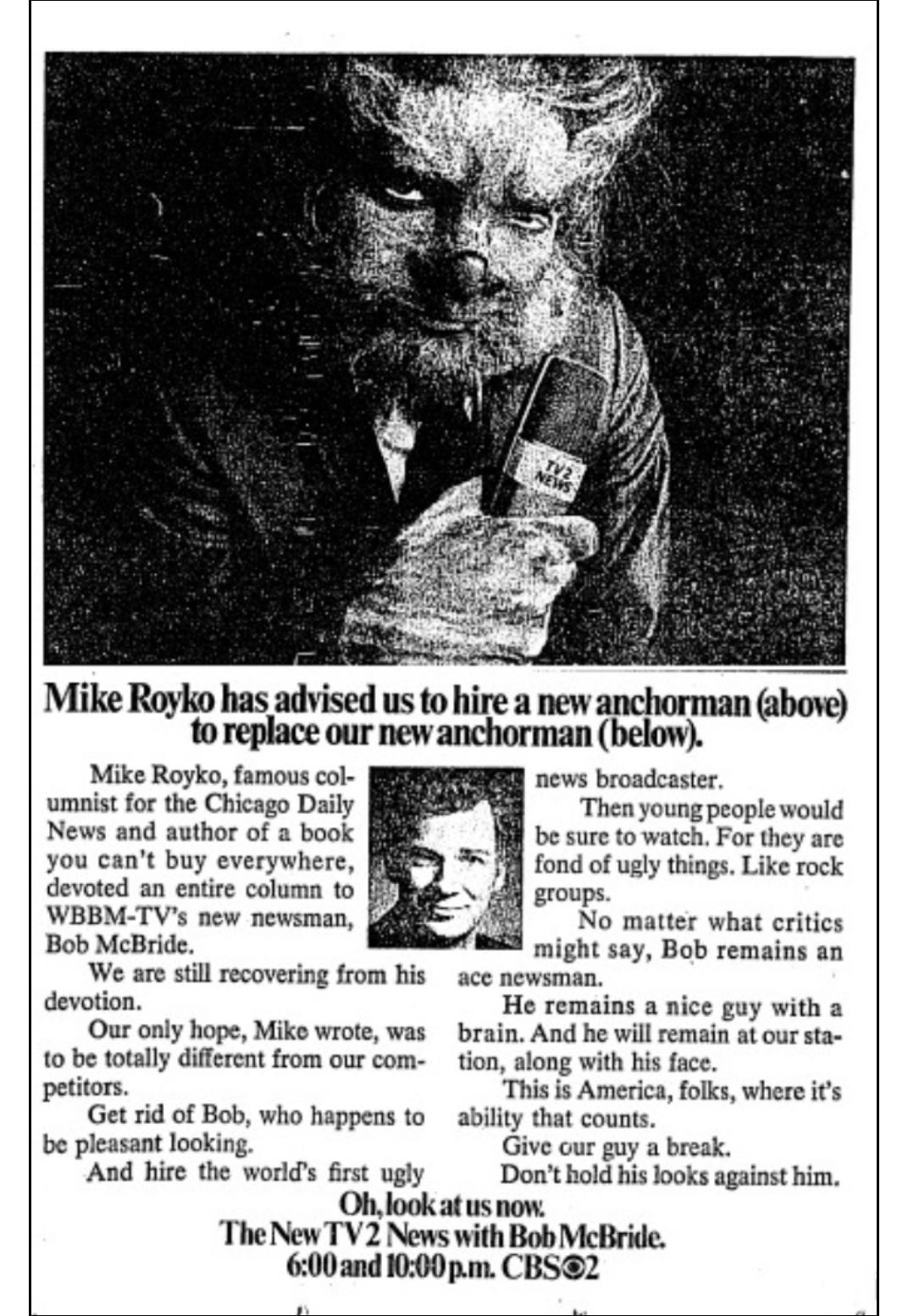

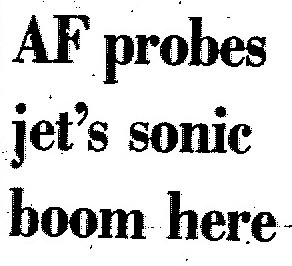


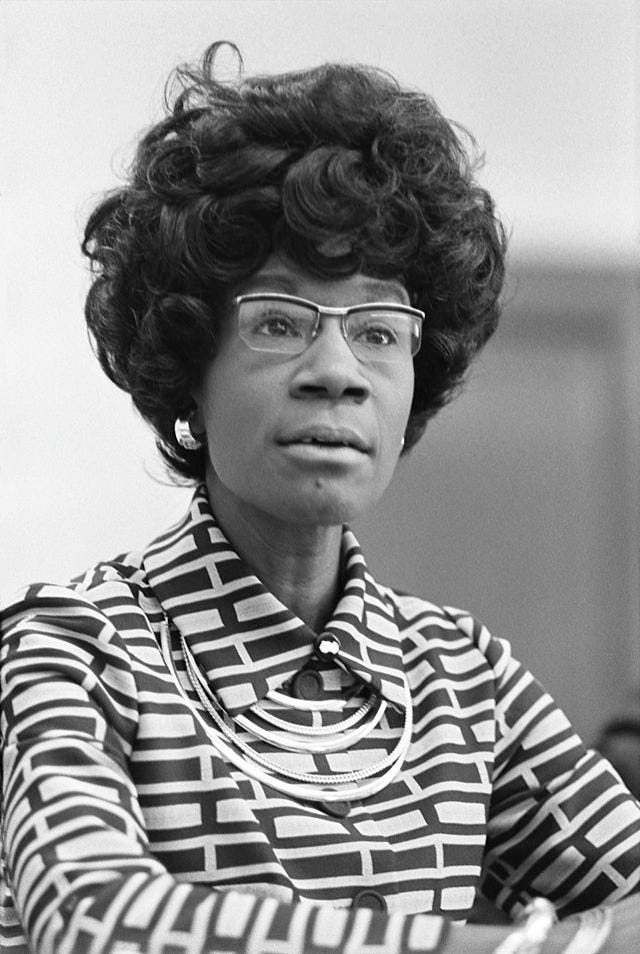



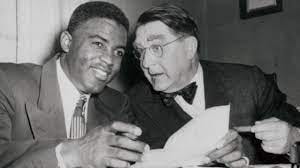

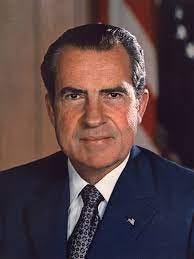




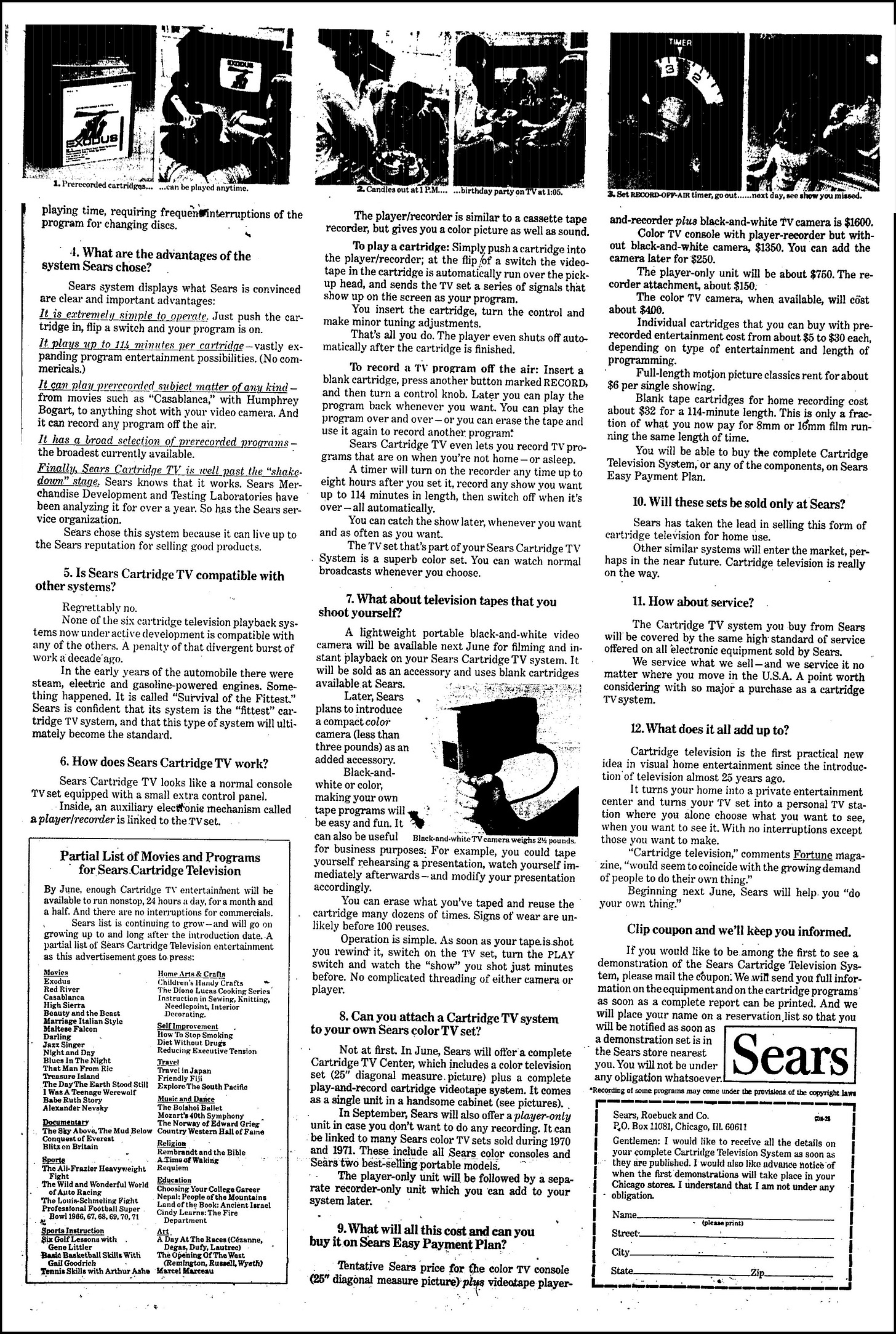

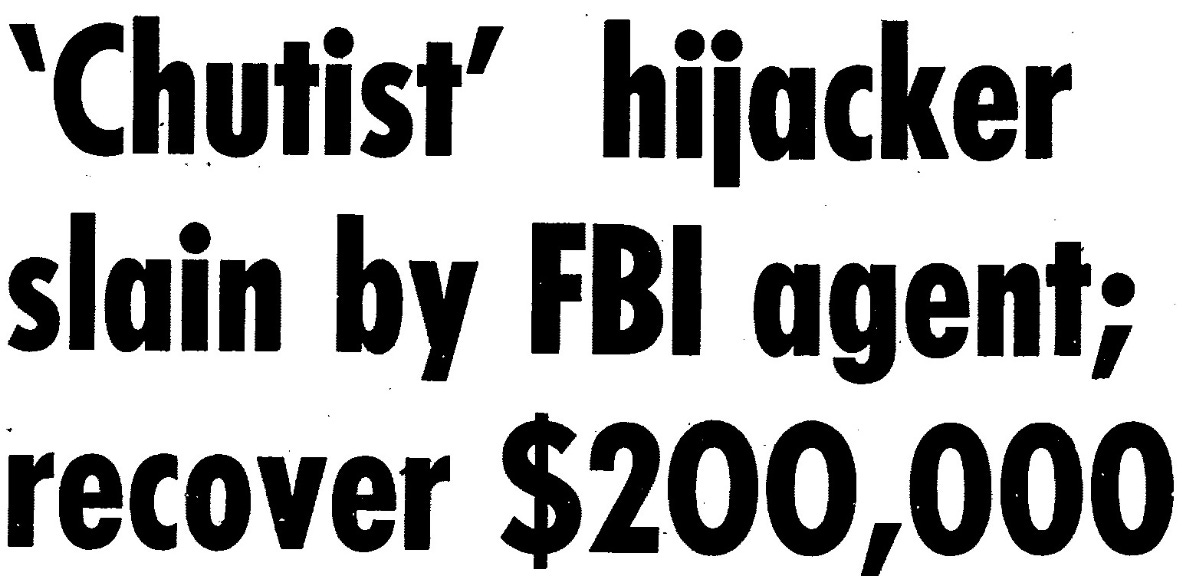






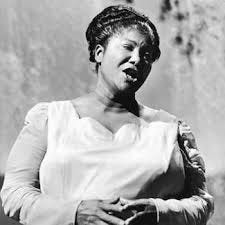














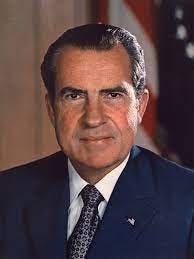
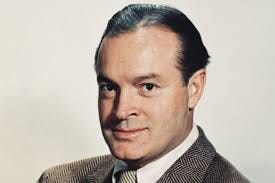

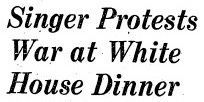







Ray Conniff was bad, but let's not forget about Pat Boone's "No More Mr. Nice Guy". Will be part of my personal song list in hell along with anything by Barry Manilow.